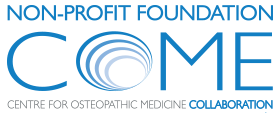The role of touch in osteopathic practice: A narrative review and integrative hypothesis
Introduction
It is not surprising in developing countries with psychological, familial and community pressure to produce child, infertile women, in addition to conventional medicine, seek various traditional methods and religious practices.This study was conducted in Sudan to explore the perspectives of currently married infertile Sudanese women on complementary medicine seeking behaviour with more emphasis on traditional self-management strategies.
Methods
A cross-sectional survey involving 203 infertile women was conducted. Collection of data was performed by means of a specifically designed questionnaire using a convenient sampling method at the women’s visits of infertility treatment clinics in Khartoum, Sudan.
Results
Findings of the study revealed that 43.3% of participated women had rich experience with infertility self-management strategies, and 65.0% of them used these strategies to treat infertility. Also 59.1% of the participants mentioned unaffordability of modern treatment as a main factor for trying self-management strategies.
Conclusion
The study revealed women’s rich experience and wide use of different types of self-management strategies together with formal infertility health care services either simultaneously or subsequently. Also, unaffordability of formal treatment services was reported as one of the most encouraging factors towards seeking traditional treatment options.







